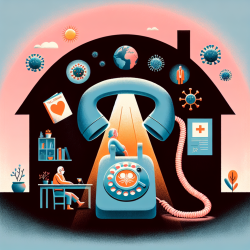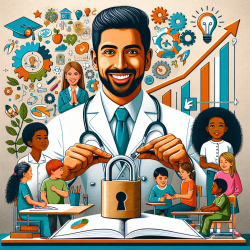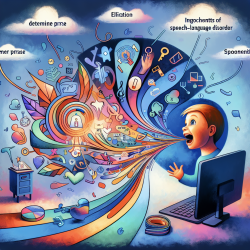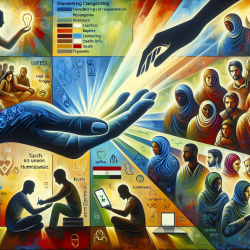The COVID-19 pandemic has highlighted the critical issue of social isolation among seniors, particularly those residing in long-term care facilities. A recent study published in the Journal of the American Medical Directors Association explored an innovative approach to mitigate this problem through a telephonic outreach program involving medical student volunteers. This initiative not only offered companionship to isolated seniors but also provided valuable learning experiences for the students involved.
The Problem of Social Isolation
Social isolation in older adults is a pressing concern, exacerbated by necessary public health measures during the pandemic. Isolation has been linked to numerous adverse health outcomes, including increased risk of falls, cognitive decline, and even mortality. The need for interventions that address these risks is more urgent than ever.
The Study: A Novel Approach
The study implemented a program called Seniors Overcoming Social Isolation (SOS), where medical and health professions students made phone calls to seniors identified as at risk of social isolation. These calls aimed to provide companionship and address any unmet needs while offering students a chance to develop their communication skills with older adults.
Program Implementation
- Seniors were identified by healthcare providers and referred to the program coordinators.
- Student volunteers were recruited through university channels and assigned seniors to contact.
- A structured script was provided to guide conversations on topics such as well-being, coping strategies, and social supports.
Outcomes and Benefits
The program demonstrated significant benefits for both participants:
- Seniors: Received much-needed social interaction and support, reducing feelings of isolation.
- Students: Gained insights into geriatric care and improved their communication skills with older adults.
The feedback from both groups was overwhelmingly positive, with many seniors expressing appreciation for the calls and students feeling empowered by their ability to make a difference.
Practical Implications for Practitioners
This study offers a replicable model for practitioners looking to implement similar programs within their communities or institutions. By leveraging student volunteers and structured telephonic interactions, practitioners can effectively address social isolation among seniors while fostering a new generation of empathetic healthcare professionals.
Encouragement for Further Research
The success of the SOS program underscores the potential of telephonic outreach as a tool for combating social isolation. Practitioners are encouraged to explore further research opportunities in this area, potentially expanding the scope of such programs or integrating them with other telehealth initiatives.
Reducing Social Isolation of Seniors during COVID-19 through Medical Student Telephone Contact










